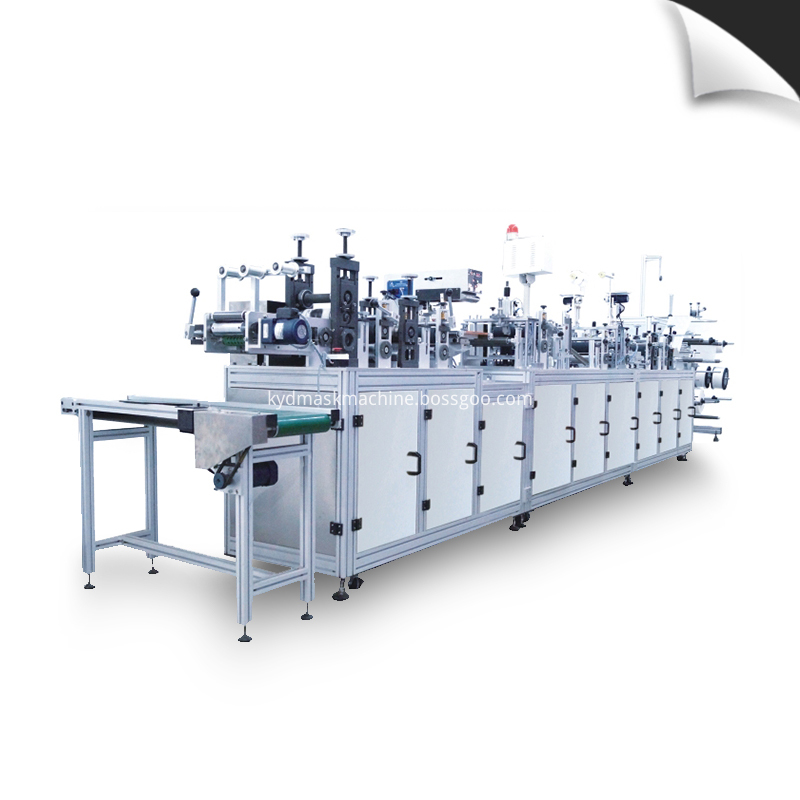This Fishing Type Mask Making Machine adopts the special fixture clip structure and the ultrasonic welding system to weld the ear loop elastic automatically on the two ends of the fish shape mask. The whole machine is made of aluminum alloy structure with no rust,PLC microcomputer control, high stability.
Fishing Type Mask Making Machine Fishing Type Mask Making Machine,Boat Shape Mask Making Machine KYD Automatic Mask Machine Factory , https://www.kydultrasonic.com
In 2017, although there will be more exciting technological developments in the water industry, industry professionals boldly speculated the most promising development trends in the new year based on the performance of the water market last year:
Online consumer interaction Today, the water industry has begun to understand and accept the advantages of customer interaction. Through the AMI solution, the Water Division can establish two-way communication directly with the user's watch, user's website, and smart phone APP, thereby improving service quality and alerting users to potential leakage, congestion, and pollution. Customers can also actively track their water usage and monitor their monthly bills. In 2017, as the demand for water transparency from customers increases, future interactive technologies will play a more important role, and available solutions will become more personalized.
Smart irrigation The global irrigation industry is undergoing a major transformation driven by technology, or widely known in the industry as precision or “wisdom†irrigation. The irrigation industry faces major challenges due to water shortages, increased crop yields and climate change. Through smart irrigation technology, farmers can use sensors or controllers to determine when and where irrigation water flows to maximize yield. At present, the global market for smart irrigation is about US$8.34 billion.
Smart Wastewater Management With the increasing intensity of environmental regulation, climate change, aging infrastructure and the urgent need to improve customer service, cities are turning to “smart†data-driven solutions to improve their wastewater systems. These solutions allow operators to detect wastewater infiltration and influent volumes, react quickly to system failures, and apply predicative modeling to optimize decision sequences. In 2017, more and more solutions will be transferred to smart wastewater management—four cities in the United States have adopted data technology to prevent harmful sewage overflow.
Real-time water quality monitoring of pollution incidents such as the Flint Water Crisis in Michigan and the recent pollution incident at Corpus Christi have raised global concern for water quality issues in developed countries. Water companies can actively manage and avoid potential threats through real-time water quality monitoring. One of the key needs of the water industry in 2017 is such a solution to ensure the safety of the pipeline network operation.
Mergers and Acquisitions In 2016, M&A with "change in the rules of the game" was particularly prominent. These mergers and acquisitions consolidated the position of several leading water industry leaders and formed several strategic partnerships. Xylem acquired Sensus and Visenti. General Electric's Water & Process Technology Division has signed a number of cooperation agreements with WaterSmar Software and Smart Earth Technologies. Belkin, a leading global consumer electronics company, announced a joint venture with Uponor to allow water to keep pace with other smart homes. "A similar partnership may be created in 2017 to provide integrated solutions.
An automated future water industry automation solution is rapidly developing and deploying in every corner of the world. The water industry has evolved with the advent of cloud computing, big data analytics, remote control systems, and the self-learning capabilities of machine equipment. These complex systems include interactive technical devices and an optimized set of operating procedures. In 2017 we will continue to see emerging automation solutions that may change the face of the entire water industry.
(Original title: 6 “Smart Water Trends†in 2017)
[China Instrument Network Meter Market] New Year For water companies, the emergence of smart digital technology and Internet of Things (IoT) equipment has improved the resilience of water supply and drainage systems and simplified the operation process. According to Deloitte's forecast, products based on data drives have great potential to change people's consumption patterns, the government's thinking mode for water resources, and how to invest in and manage water infrastructure policies in the future.